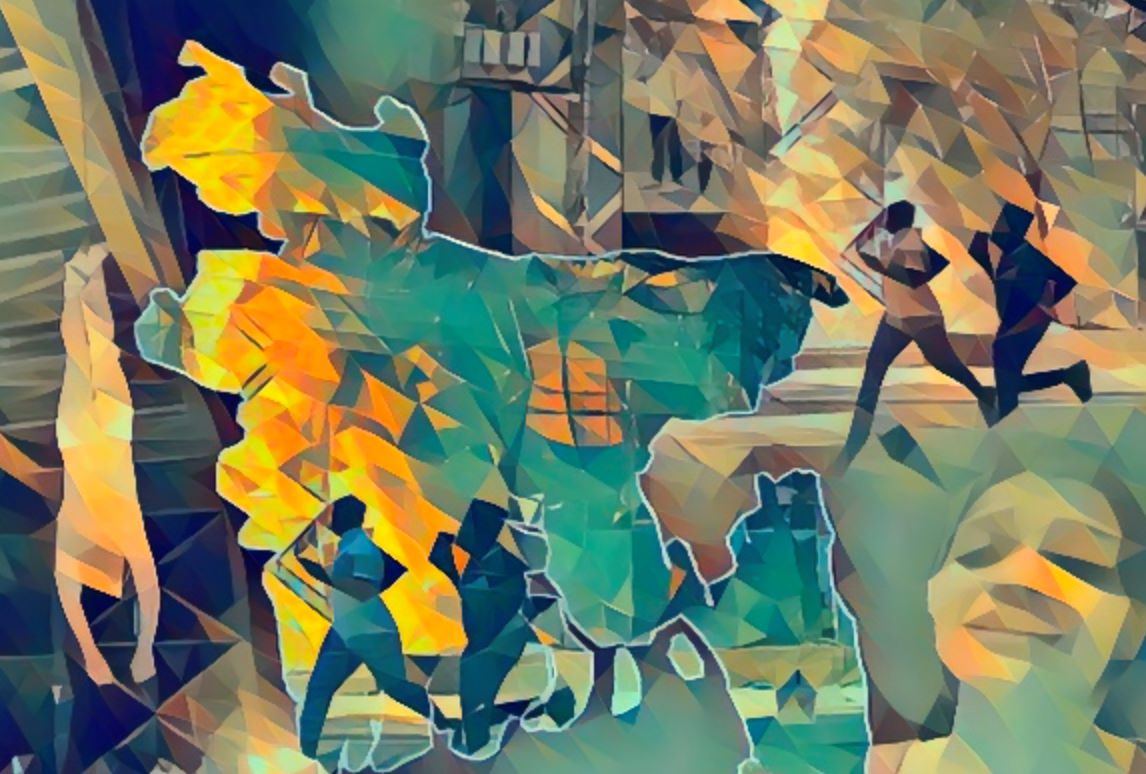President Shahabuddin's future hangs in the balance as political divisions widen
-671b58d29a6c3.jpeg)
The fervent calls for President Mohammad Shahabuddin’s resignation have momentarily quieted for now after a few days of intense situation.
Yet, the debate surrounding his potential removal continues to stir controversy, with various political factions offering differing viewpoints.
The Anti-Discrimination Student Movement and allied organizations, which led the charge demanding the president's ousting, have paused their street protests.
In a bid to ease tensions, the interim government has assured these groups that their concerns have been heard, suggesting that further demonstrations outside Bangabhaban—or elsewhere—are unnecessary.
While this governmental response has temporarily calmed the situation, the underlying issues remain unresolved.
On Tuesday night, a small group of Anti-Discrimination Student Movement supporters gathered outside Bangabhaban, but by Wednesday morning, the focus shifted dramatically.
A delegation from the Bangladesh Nationalist Party (BNP), one of the country’s major political entities, convened with the Chief Adviser of the interim government.
This meeting marked a critical moment, as the BNP has expressed reservations about the push for President Shahabuddin’s resignation.
Salauddin Ahmed, a member of the BNP Standing Committee and a prominent figure in the delegation, raised alarms about the potential fallout from a sudden presidential resignation.
“What I said was loud and clear,” Ahmed told a media briefing. “If the president resigns, it will create obstacles, delays, and complications in the democratic transition, which will not be beneficial for the nation.”
However, leaders within the Bangladesh Nationalist Party (BNP) have begun to voice their internal concerns regarding President Mohammad Shahabuddin’s role.
While many within the party believe it would be wise for him to step down, they staunchly opposed the way his potential removal has been proposed.
The BNP asserts that any decision about the president's position should emerge from discussions with political parties and stakeholders, stressing the need for national consensus before identifying a successor, Bangla Outlook learned after talking with several leaders.
They argue that a hasty decision could jeopardize the next national elections, which remain the BNP’s primary focus.

Resignation calls get louder
However in stark contrast, the Bangladesh Jamaat-e-Islami, the largest Islamist party of Bangladesh, has adopted a more aggressive stance on the matter.
The party contends that President Shahabuddin has forfeited both the moral and legal right to hold office, citing his controversial remarks about Prime Minister Sheikh Hasina’s resignation as a catalyst for their position.
Jamaat’s Publicity Secretary, Matiur Rahman Akand, said that the president's actions have rendered him unfit to continue in his role, claiming that his removal would not precipitate a constitutional crisis.
“The interim government system is not explicitly defined in the constitution either, but through consensus and a Supreme Court reference, it was established. This can also be resolved,” Akand stated confidently, expressing belief that the situation could be managed smoothly.
Adding to the discourse, Nagorik Oikkya President Mahmudur Rahman Manna also weighed in, suggesting that the next general election might proceed without delays, even if the president were to resign or be removed.
Manna pointed out that the constitution does not provide a specific protocol for a presidential ousting, and proposed that the interim government consult with political parties to navigate the next steps.
He underscored the necessity of achieving national consensus to avert any potential crisis.
Similarly, Comrade Saiful Huq, General Secretary of the Revolutionary Workers' Party, criticized President Shahabuddin for his contradictory statements, claiming he has lost his moral authority.
Huq voiced concerns that the president's removal could result in a vacancy that anti-democratic forces might exploit.
He proposed that the interim government’s attempts to engage political parties could provide a path to resolving the crisis.
Interim Government Information Adviser Nahid Islam meanwhile clarified in a public briefing on Wednesday that the question surrounding the president's future is more a political decision than a legal or constitutional one.
Nahid emphasized the importance of political compromise and national consensus to address the issue, highlighting ongoing discussions with various stakeholders.
“Our primary considerations in making a decision are the stability, security, and order of the state,” said Nahid Islam. He reiterated that dialogues are ongoing and that a resolution may emerge from these conversations.
—

